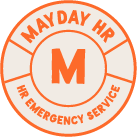Get right to work checks right
The penalty for not having checked your employee’s right to work in the UK has recently increased to £45,000 per illegal worker, plus a possible prison sentence for repeat offenders.
Why is it so important?
Checking an individual’s right to work in the UK before they start work with you is a legal requirement. Employers must follow the Home Office guidance in place at the time of the check to ensure they have a statutory excuse, providing protection against penalties in case of any inconsistencies or fraudulent documentation. Failure to comply with these regulations can result in fines of up to £20,000 per illegal worker and, in severe cases, potential imprisonment for business owners.

Simplifying the Process
There are various methods and considerations to simplify the right to work checks. I have tried to break this down to keep it as simple as possible, as let’s be honest, anyone who has tried to read the Home Office guidance has got completely overwhelmed.
- British or Irish Citizens
- For British or Irish citizens, requesting their passport (even if expired) is the simplest way to verify their right to work.
- In the absence of a passport, you will need their birth certificate AND proof of National Insurance number
- The employer should verify the passport’s photo or other ID, make a copy, sign, and date it, affirming its authenticity.
- EU Employees
- EU citizens with settled or pre-settled status have a share code, which can be checked online through the government’s website.
- By verifying the share code and ensuring the person matches the displayed photo, employers can print, sign, and date the verification notice.
- Non-EU Employees
- Non-EU employees will have either a manual visa in their passport or a biometric visa.
- For manual visas, the employer must physically check the documents in the passport, ensuring it is in-date.
- Biometric visas can be checked online using a share code similar to the EU employee process.
- Employers should be aware that having the right to live in the UK does not guarantee the right to work. Some visas may impose limitations on employment, such as restricted working hours for students.
Utilising ID Service Providers
Employers have the option to utilise approved ID service providers who can perform comprehensive checks on settled/pre-settled status, visas, and access Home Office databases. However, employers must still conduct manual checks for expired British and Irish passports as these won’t show up on the IDSP systems.
Making the process as easy as possible
Here are some additional tips to help make things easier:
1.Include a clear question in the application process regarding the applicant’s right to work. For example “Do you have the right to work in the UK?” YES/NO
2.Request applicants to bring their right-to-work documentation to the interview stage, even for video interviews.
3.Consider arranging a face-to-face meeting or including a face-to-face element in the recruitment process to ensure proper verification.
4.Include a clause in the offer letter stating that the offer is subject to receiving satisfactory references and evidence of the right to work.
5.A driving licence is not proof of right to work, so you cannot accept it.
Right to Work
Ensuring compliance with these regulations is crucial for employers to avoid penalties and legal complications. It’s crucial to follow the Home Office guidance and conduct thorough checks. By implementing these best practices, employers can streamline their verification process while staying compliant with the law. If in doubt, don’t let them start work for you until you are sure they have the right to work in the UK.

If you are unsure or need any further help or guidance, please get in touch today at [email protected]





